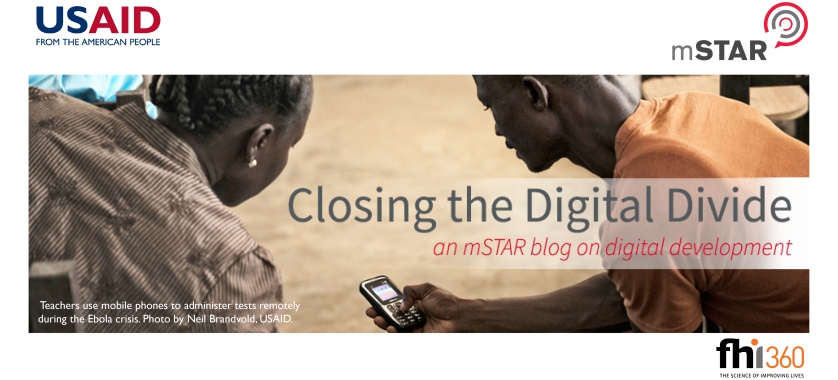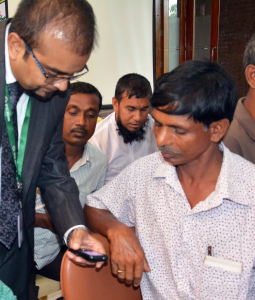This is the first of a three-week blog series on digital financial services for agriculture. This series showcases mSTAR and the Digital Development for Feed the Future team’s recently released interactive online resource and instructional videos, made to complement The Guide to the Use of Digital Financial Services in Agriculture. The online resource breaks down the steps of how to use digital financial services in agriculture.
Mobile money can transform the reach and success of a USAID project.
By offering a secure way to store money and access financial services, mobile money has the potential to increase the efficiency of programs and significantly improve the resilience of smallholder farmers.
Carrying cash in the field can be precarious for development workers and beneficiaries alike, as many USAID missions and partners know. In Bangladesh, “there is a security risk and safety risk,” says a representative from WorldFish, a non-profit that works with Feed the Future, the U.S. Government’s global hunger and food security initiative. Cash can be lost, or worse, stolen. But until recently, cash was the only form of payment—it’s how farmers paid for agricultural inputs and how buyers paid for agricultural products. “There was no other channel,” explains Josh Woodard, Regional ICT & Digital Finance Advisor at FHI 360.
Mobile money has emerged as an obvious solution to the risk of carrying cash. While access to banks is limited for rural agricultural communities, access to mobile phones is not. In June 2016, for example, the Bangladesh Telecommunication Regulatory Commission reported 131.4 million mobile phone subscriptions in Bangladesh. This makes up around 83% of Bangladesh’s population. With this, mobile money has seen massive growth in Bangladesh. It has “opened an opportunity to eliminate or vastly reduce the amount of cash transactions,” Josh says.
Josh leads the Bangladesh office for the FHI 360-led and USAID-funded Mobile Solutions Technical Assistance and Research project (mSTAR). In addition to reducing the risk of staff carrying cash, USAID and mSTAR saw the impact mobile money could have in achieving the goals of USAID agricultural programs in the country. To start, mSTAR assessed where and how mobile money could be applied in project value chains. They conducted value chain studies and provided technical assistance, training staff and building capacity.
“Since mSTAR started activities in Bangladesh in September 2013,” Josh says, “we have been able to work with USAID to digitize payments for 10 Feed the Future activities.” Farmers now have access to financial products, many for the first time. Without money stolen or lost, and with the ability to store and manage money, farmers can reinvest more in their farms, in turn increasing the amount of food they can produce, and their profits. All this leads to stronger, and safer, communities.
Watch the video below to see how USAID and mSTAR implemented mobile money in Bangladesh and worked with implementing partners to successfully impact beneficiary farmers.
As the Bangladesh example shows, digital financial services have the potential to strengthen Feed the Future projects around the globe. USAID is here to help missions and partners identify specific challenges in value chains and integrate digital financial services into those corresponding challenges.
To learn more about how to implement digital financial services in Feed the Future projects, walk through the steps of the online Guide to the Use of Digital Financial Services in Agriculture. If you have specific questions or feedback, contact digitaldevelopment@usaid.gov.







You must be logged in to post a comment.